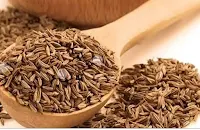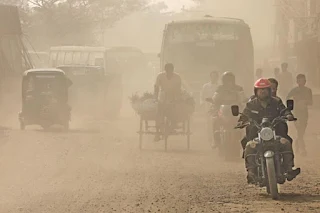A spice is a seed, fruit, root,bark,or other plant,substance primarily used for flavoring,or coloring, food. Spices are distinguished from herbs,which are the leaves, flowers, or stems of plants used for flavoring or as a garnish. Spices are sometimes used in medicine religious, rituals, cosmetics, or perfume production.
Cloves
Cloves are a versatile spice that add flavor while also providing health benefits.They are high in antioxidants may help regulate blood sugar, can kill bacteria and more.
Cinnamon,
Cinnamon is rich in antioxidant and other beneficial compounds. It may halp suppont blood sugar control, protect against heart disease,and reduce inflammation Cinnamaldehyde antifungal and antibacterial properties,which may reduce infections, as well as tooth decay and bad breath.Cardamom is very beneficial for those suffering from respiratory problems, whooping cough lung intections and asthma. Regularly two cardamoms in the mouth twice a day and slowly chewed will get it's benefits or burning two cardamom in not water and drinking that water as tea can also get benefits
Cumin water improves memory and works specifically to strengthen the brain. Drinking cumin water regularly for a few days significantly improves memory and intelligence. Drinking cumin water is very beneficial for the liver and stomach and the antioxidants present in cumin remove the toxicity of the body and internal organs.
Benefits of Ajwain wort for skin and hair care, prevents kidney stones, weight control, improves digestion, increases lung capacity, improves immunity, lowers cholesterol levels, headaches, stomachaches, relieves toothache.
Benefits of Kalijira Increases immunity, increases memory, reduces the risk of heart problems, improves skin health, relieves arthritis and muscle pain. Kalijira is very important for the body. Removes all stomach diseases - bacteria and gas. Helps prevent hair fall.
It is said that ginger cures all diseases. Which means that ginger is able to play a significant role in curing all diseases in our body. Contains potassium, iron, magnesium, calcium, phosphorus, sodium, zinc, manganese, vitamins A, B6, E and C and anti-bacterial agents and anti-inflammatory agents are present. Because of which people of all ages can eat ginger, especially for children, ginger-honey-water is very effective for healthy body and fresh mind.
Black pepper contains a chemical called piperine, which gives it a bitter taste. However, black pepper peperine is beneficial for the gastrointestinal system. Besides improving digestion, black pepper is a powerful antioxidant. Therefore, consuming it not only improves digestion and helps in better absorption of food.
During this time drinking fennel soaked water relieves the pain a lot. 5/7 control of blood pressure. If you have high blood pressure, fennel soaked water and then wer fennel a little daily well give effective results. The potassium in fennel helps regulate blood pressure.
Tej leaves
Help to relieve digestive problems, heartburn, acidity and constipation. Consuming Tej leaves as a tea can solve intestinal problem. Lowers blood sugar and acts as an antioxidant. Drinking bay leaf tea for a month can help the body peoduce insulin, remove bad cholesterol and get rid of triglycerides.
Garlic
Garlic is a spicy food ingredient. Garlic has been used cooking spice since the dawn of time. Not only in enhancing the flavor in cooking, but the nutritional value of garlic has made garlic one of the most popular spice in the list. So apart from cooking, garlic also work as a medicine for maintaining good health. Garlic has been used as medicine since many years. Almost every nation in the world has been using garlic to treat various diseases. Garlic is rich in moisture, protein,fat,mineral fiver and carbohydrates. Vitamin and minerals include calcium, phosphorus, iron,thiamine, riboflavin, vitamin C. Apart from this ,garlic also contains small amount of iodine, sulfur and chlorine. Eating garlic on an empty stomach can prevent various diseases as well as build resistance against various diseases.
Tulsi leaves
Tulsi leaves made into a tea are benicifal. Tulsi is rich in zinc and vitamin C. It also has anti-bacteria, anti-fangul and anti-viral properties. Taking a few leaves of this plant and making it can insistently boost immunity.
Fenugreek
Fenugreek is rich vitamin. A such as thiamin, folic acid , riboflavin, niacin, vitamin A,B6 and C. Fenugreek helps to get relief from many types of digestive problems like stomach ache, constipation and inflammation in the lower abdomen. The soluble fibre in fenugreek soaked in water helps relieve constipation.
Lemon


























